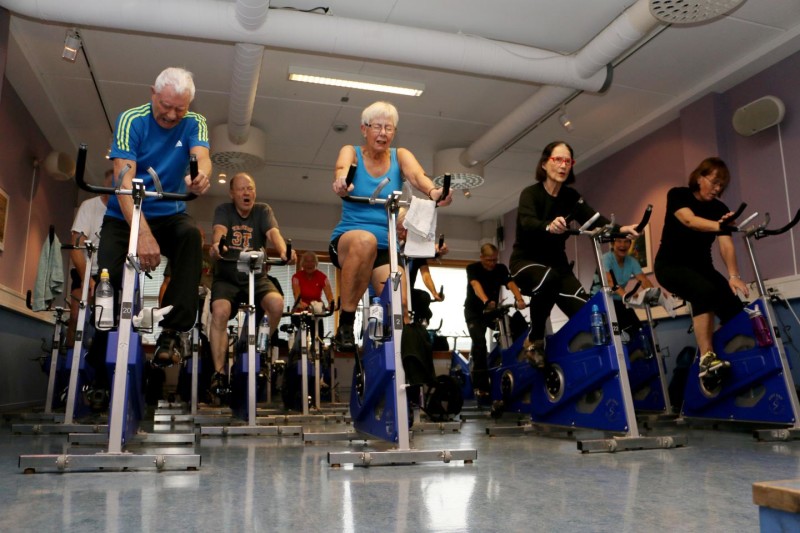Generation 100 will determine whether exercise training leads to more active and healthier years, and will establish reference values for several important measures such as fitness level, daily physical activity, muscle strength, pulmonary function, cognitive function, “mental health,” quality of life and balance,” says Dr. Dorthe Stensvold, Postdoctor at K. G. Jebsen Center for Exercise in Medicine.
Participant inclusion started in 2012, and by May 2013 a total of 1567 participants had been included into the study. The participants were randomized to either five years of twice weekly sessions of high intensity training, moderate intensity training, or to a control group receiving current physical activity advice. Clinical examinations, physical tests, and questionnaires were administered to all participants at baseline and after one year, and will be repeated after three and five years. Participants will be followed up by linking to 10 relevant registries.
“Epidemiological studies suggest that exercise has a tremendous preventative effect on morbidity and premature death, but these findings need to be confirmed by randomized clinical trials,” Dr. Stensvold says.
Source: Science daily
N.H.Khider

